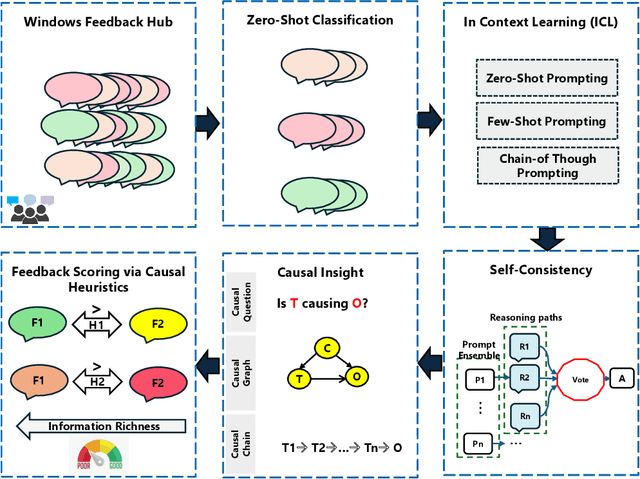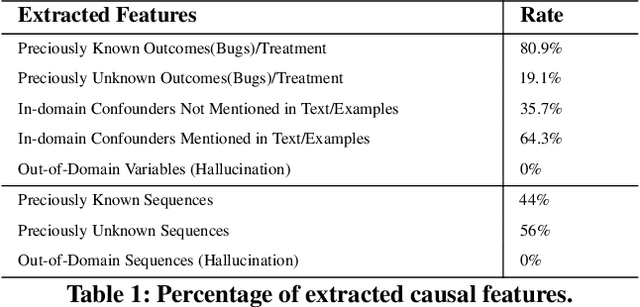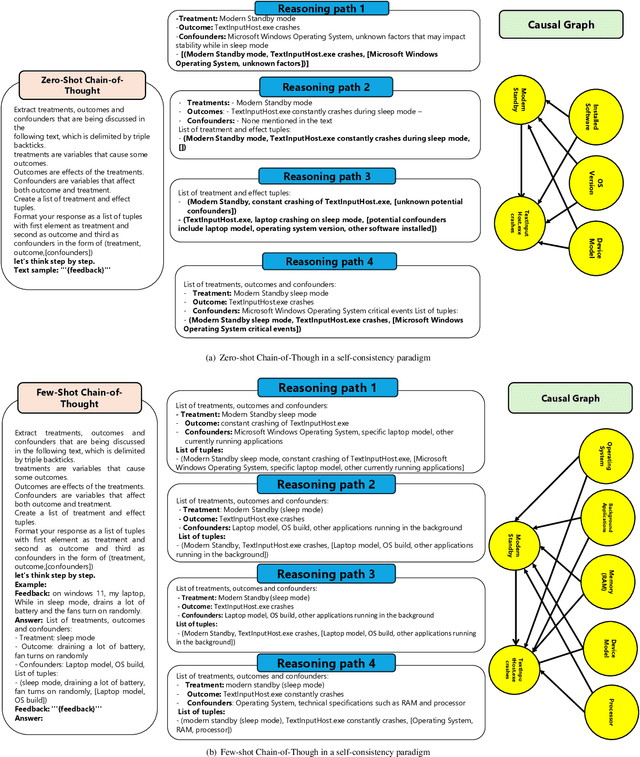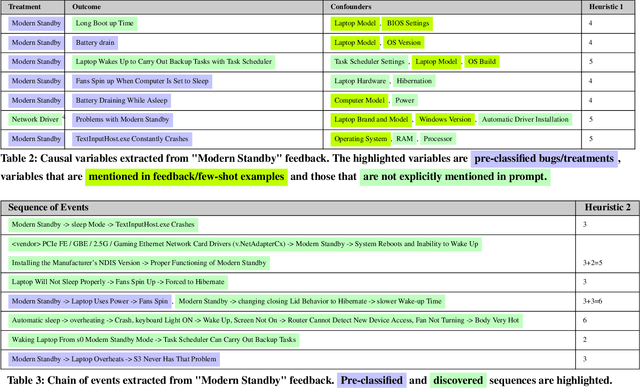Steve Lim
Extracting Self-Consistent Causal Insights from Users Feedback with LLMs and In-context Learning
Dec 11, 2023



Abstract:Microsoft Windows Feedback Hub is designed to receive customer feedback on a wide variety of subjects including critical topics such as power and battery. Feedback is one of the most effective ways to have a grasp of users' experience with Windows and its ecosystem. However, the sheer volume of feedback received by Feedback Hub makes it immensely challenging to diagnose the actual cause of reported issues. To better understand and triage issues, we leverage Double Machine Learning (DML) to associate users' feedback with telemetry signals. One of the main challenges we face in the DML pipeline is the necessity of domain knowledge for model design (e.g., causal graph), which sometimes is either not available or hard to obtain. In this work, we take advantage of reasoning capabilities in Large Language Models (LLMs) to generate a prior model that which to some extent compensates for the lack of domain knowledge and could be used as a heuristic for measuring feedback informativeness. Our LLM-based approach is able to extract previously known issues, uncover new bugs, and identify sequences of events that lead to a bug, while minimizing out-of-domain outputs.
DRIFT: Deep Reinforcement Learning for Functional Software Testing
Jul 16, 2020



Abstract:Efficient software testing is essential for productive software development and reliable user experiences. As human testing is inefficient and expensive, automated software testing is needed. In this work, we propose a Reinforcement Learning (RL) framework for functional software testing named DRIFT. DRIFT operates on the symbolic representation of the user interface. It uses Q-learning through Batch-RL and models the state-action value function with a Graph Neural Network. We apply DRIFT to testing the Windows 10 operating system and show that DRIFT can robustly trigger the desired software functionality in a fully automated manner. Our experiments test the ability to perform single and combined tasks across different applications, demonstrating that our framework can efficiently test software with a large range of testing objectives.
 Add to Chrome
Add to Chrome Add to Firefox
Add to Firefox Add to Edge
Add to Edge